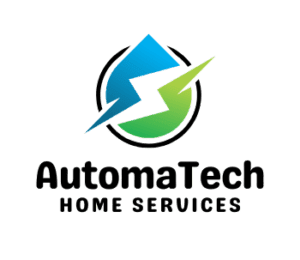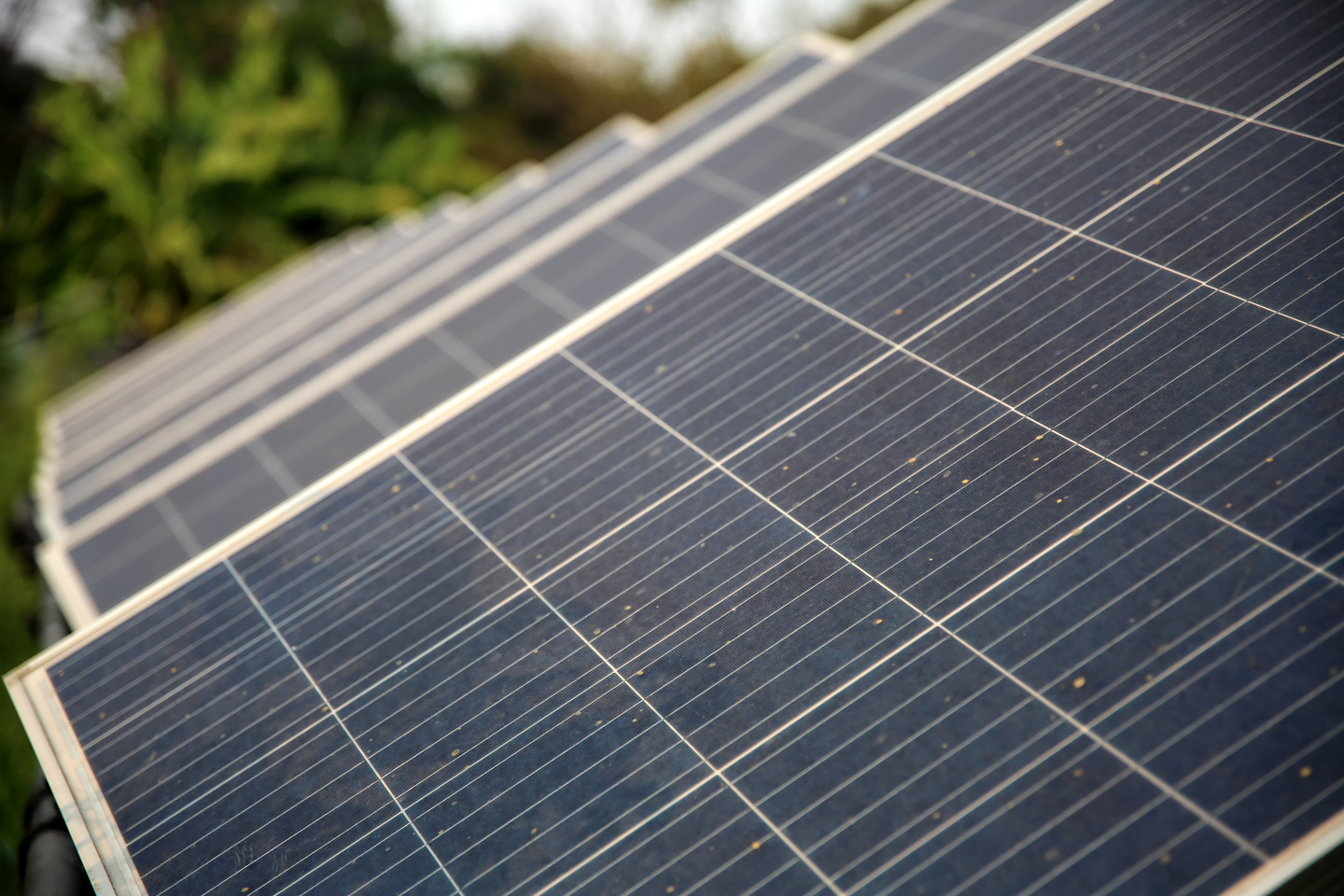Starting solar energy might seem a daunting prospect to many, especially for those who are new to renewable energy sources. You might be apprehensive about the technology, initial investment costs, and the task of adapting to a new energy usage habit. However, in recent years, with the advancement of technology and increased environmental awareness, switching to solar energy has become a straightforward and rewarding venture. If you’re hesitant about embracing this sustainable alternative, here are some tips to alleviate your fears and help you confidently step into the solar energy arena.
Starting with solar energy can seem daunting due to unfamiliar technology, upfront costs, and changing energy use habits. However, with many advancements in the field and greater accessibility to resources, switching to solar energy is easier than ever before. For those feeling apprehensive about starting with solar energy, here are some tips to help ease your fears:
- Educate Yourself: There’s a wealth of information available about solar energy. Look into the science behind it, its benefits, and how it compares to other energy sources. Familiarizing yourself with the concept can help eliminate the fear of the unknown.
- Consider the Cost Savings: One of the biggest benefits of solar energy is its potential for savings. While there are upfront costs for equipment and installation, over time you can save significantly on energy bills. In fact, in some cases, you may be able to sell excess energy back to the grid, creating an additional income stream.
- Look into Financial Incentives: Many local and national governments, as well as energy companies, offer financial incentives for switching to solar energy. These can come in the form of tax credits, rebates, or grants, which can significantly offset the upfront costs.
- Start Small: You don’t have to transition your entire home to solar power right away. Start with a small system, like solar outdoor lights or a solar water heater, to familiarize yourself with the technology and its benefits.
- Get Professional Advice: There are many solar energy professionals and companies that offer consultations and advice. They can provide personalized guidance based on your location, energy usage, and specific needs. This will also give you a clearer understanding of the potential costs and savings.
- Understand the Environmental Impact: Besides the financial benefits, solar energy is a green, renewable resource. Switching to solar energy reduces your carbon footprint and contributes to the fight against climate change.
- Solar Energy is Reliable: Solar panels can last up to 25-30 years or more with little maintenance. Moreover, improvements in energy storage technology such as solar batteries mean that you can have access to electricity even when the sun isn’t shining.
- Community Solar Projects: If you are unable or unwilling to install solar panels on your property, consider joining a community solar project. These allow multiple people to benefit from a single, shared solar array.
Remember, change can be scary, but it can also be exciting and rewarding. The shift to solar energy not only makes financial sense but also contributes to a sustainable future.
Educate Yourself
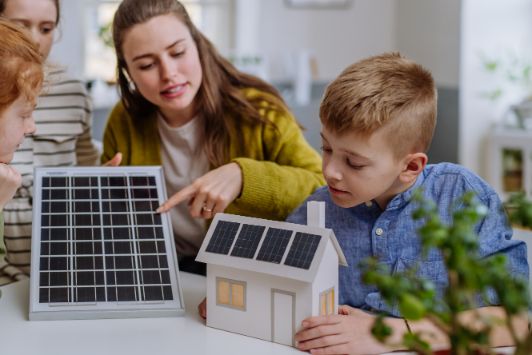 Taking the first step into solar energy involves understanding the basics. It is natural to fear what we don’t know, but thanks to the digital age, we have an abundance of information at our fingertips. Here are a few topics to get you started on your solar energy education:
Taking the first step into solar energy involves understanding the basics. It is natural to fear what we don’t know, but thanks to the digital age, we have an abundance of information at our fingertips. Here are a few topics to get you started on your solar energy education:
The Basics of Solar Energy
Solar energy harnesses the power of the sun and converts it into electricity. This is done using solar panels, which contain solar cells that capture sunlight and turn it into a form of energy that can be used in our homes and businesses.
Types of Solar Energy Systems
There are several different types of solar energy systems, including photovoltaic (PV) systems that generate electricity directly from sunlight, solar thermal systems that use the sun’s heat to provide hot water, and concentrated solar power (CSP) systems that focus sunlight to generate heat that drives a turbine to produce electricity.
Benefits of Solar Energy
Solar energy is a clean, renewable energy source that reduces greenhouse gas emissions and our reliance on fossil fuels. It’s also abundant, with more energy from the sun hitting the Earth in an hour than humanity uses in a year.
Solar Energy vs. Traditional Energy
Compared to traditional energy sources like coal and natural gas, solar energy is much cleaner and more sustainable. While fossil fuels are finite and produce harmful emissions when burned, solar energy is renewable and produces no pollutants.
The Science Behind Solar Panels
Understanding how solar panels work can demystify the technology. Solar panels are made up of solar cells, usually made of silicon, that generate electricity through a process called the photovoltaic effect.
Solar Power Installation and Maintenance
Solar panel installation involves mounting panels in a location with good sunlight exposure, often a roof, and connecting them to the electrical system. Solar panels require minimal maintenance, usually just periodic cleaning and a check for any damage.
Financing and Incentives
Learn about the various financial incentives and schemes available for installing solar panels. This includes government grants, tax benefits, and energy buy-back programs from utility companies.
As you delve deeper into these topics, you’ll gain a comprehensive understanding of solar energy. The more you know, the less intimidating the switch will be. Embrace the learning process as an empowering part of your solar energy journey.
Consider the Cost Savings
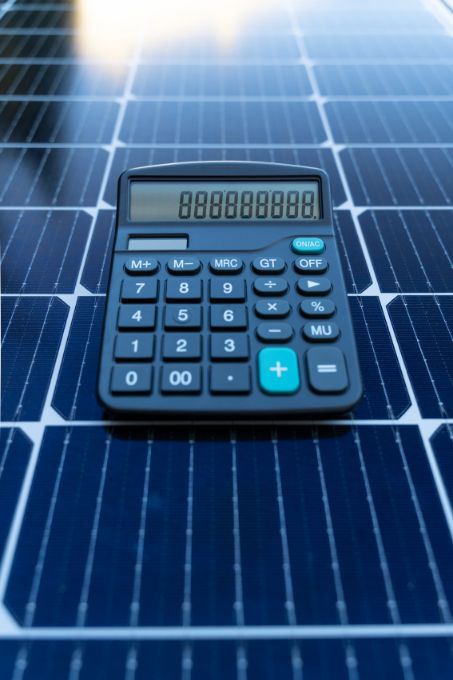 Financial considerations are a crucial factor when contemplating the shift to solar energy. It’s important to remember that although the initial setup cost can be substantial, the long-term savings and potential income streams from solar energy can make this a wise investment. Here’s why:
Financial considerations are a crucial factor when contemplating the shift to solar energy. It’s important to remember that although the initial setup cost can be substantial, the long-term savings and potential income streams from solar energy can make this a wise investment. Here’s why:
Reduced Energy Bills:
Once your solar panels are installed, they start generating free, renewable energy for your use. This can significantly reduce your monthly electricity bills. Depending on your location, system size, and electricity consumption, you could offset 70-100% of your energy needs with solar, leading to substantial savings.
Feed-in Tariffs/Net Metering:
In many regions, governments or utility companies offer feed-in tariffs or net metering programs, which allow you to sell excess solar energy back to the grid. The energy you produce but don’t use can be fed back into the grid in exchange for credits or money, which can further offset the cost of any grid electricity you use.
Increased Property Value:
Homes equipped with solar energy systems often have higher property values and sell more quickly than non-solar homes. If you decide to sell, you’ll likely recoup a significant portion of your investment.
Protection Against Rising Energy Costs:
Solar panels can help hedge against future electricity price increases. Once your system is paid for, your cost of electricity can be essentially free or very minimal, protecting you from rising energy costs.
Long Lifespan of Solar Panels:
Solar panels have a long lifespan, often 25 years or more, and typically require little to no maintenance. This means you can benefit from these cost savings for a long time after your initial investment.
Tax Credits and Incentives:
Many countries offer significant incentives for installing solar energy systems, such as tax credits, rebates, and grants. These incentives can significantly reduce the initial cost of the system.
While it’s crucial to consider the upfront costs, the financial benefits of a solar energy system can outweigh those initial expenses over time. Be sure to consult with a solar energy professional to understand the specific costs and savings potential for your home or business.
Look into Financial Incentives
 Financial incentives are key motivators for the adoption of solar energy. They can substantially reduce the upfront costs of solar installations, making the switch to this renewable source of energy more accessible and appealing. Here’s what you should know:
Financial incentives are key motivators for the adoption of solar energy. They can substantially reduce the upfront costs of solar installations, making the switch to this renewable source of energy more accessible and appealing. Here’s what you should know:
Federal Tax Credits
In many countries, federal governments offer tax credits for installing solar power systems. For example, in the United States, homeowners and businesses can claim a certain percentage of the cost of their solar panel system against their taxes under the federal solar tax credit, also known as the Investment Tax Credit (ITC).
State and Local Incentives
Depending on your location, there may be additional state, local, or utility company incentives available. These can include property tax exemptions, sales tax exemptions, or direct rebates and grants. For example, the California Solar Initiative (CSI) provides upfront rebates for solar systems installed in residential homes.
Feed-in Tariffs/Net Metering
Some local utilities or governments offer programs where you can be paid for the excess electricity your solar system generates and feeds back into the grid. This not only helps offset the cost of your system but can also turn into a long-term income stream.
PACE Financing
Property Assessed Clean Energy (PACE) financing allows homeowners and businesses to borrow money to pay for solar panels and other energy improvements. The amount borrowed is repaid via a special assessment of the property over a period.
Solar Renewable Energy Certificates (SRECs)
In some states in the U.S., homeowners who install solar panels can earn SRECs for the electricity their system generates. They can then sell these certificates to utility companies, generating additional income.
Green Energy Loans
Some banks and financial institutions offer green energy loans with lower interest rates or more favorable terms for sustainable projects, including solar panel installations.
To find the incentives available to you, check out the Database of State Incentives for Renewables & Efficiency (DSIRE) in the U.S., or your local government or energy agency’s website. A solar installer or energy consultant can also help you identify and apply for these incentives.
Remember, while the initial costs of solar can be high, these incentives can make the switch much more affordable. By taking advantage of these opportunities, you can not only reduce your energy costs but also contribute to the broader transition toward renewable energy.
Start Small
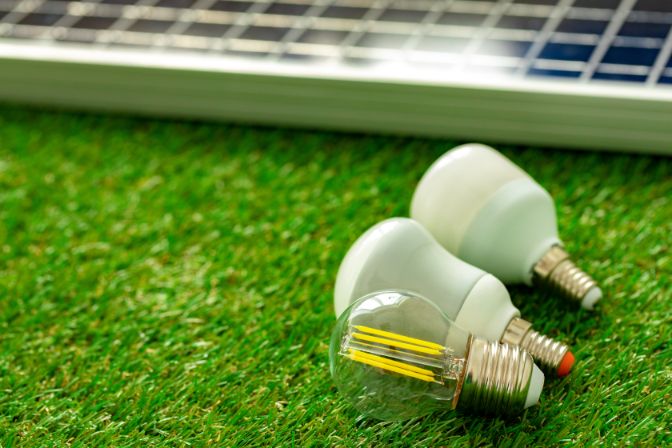 Starting small is a perfect way to ease into the solar energy world, especially if the prospect of a full solar energy system seems overwhelming or financially out of reach. This approach allows you to familiarize yourself with the technology, understand its benefits, and see how solar energy can fit into your life. Here are some ways to start small with solar energy:
Starting small is a perfect way to ease into the solar energy world, especially if the prospect of a full solar energy system seems overwhelming or financially out of reach. This approach allows you to familiarize yourself with the technology, understand its benefits, and see how solar energy can fit into your life. Here are some ways to start small with solar energy:
Solar Outdoor Lights
This is one of the simplest and most affordable ways to start using solar energy. Solar lights for your garden, driveway, or outdoor spaces are easy to install and require no wiring. They charge during the day and automatically illuminate your outdoor areas at night.
Solar Water Heater
Solar water heaters use the sun’s energy to heat water for your home. They can be a cost-effective way to generate hot water for your home and can be used in any climate.
Solar Battery Chargers
These can be used to charge your electronic devices, like smartphones or laptops. They’re a great way to introduce yourself to solar power, and they’re particularly useful for camping trips or power outages.
Solar-Powered Attic Fans
These fans help to vent out the hot air in your attic, reducing your air conditioning costs. They’re easy to install and can make a noticeable difference to your home’s temperature and energy bills.
Portable Solar Generators
These are handy for camping trips, outdoor activities, or as a backup power source. They capture and store solar energy for you to use as needed.
Solar Pool Heaters
If you have a pool, a solar pool heater can be a cost-effective way to reduce your energy usage. They use solar collectors to heat the water and can significantly extend your swimming season.
These smaller-scale solar projects can provide immediate benefits and savings. They allow you to get comfortable with solar technology, gain confidence in its reliability, and understand its operation before scaling up to a larger solar photovoltaic (PV) system for your home. Moreover, these initial steps into solar power demonstrate a commitment to sustainability that can be both personally rewarding and beneficial for the environment.
Get Professional Advice
 Seeking professional advice is an important step in your transition to solar energy. Solar professionals and consultants can provide guidance tailored to your specific circumstances and needs, helping to ensure your investment in solar energy is as beneficial as possible. Here’s why and how you should seek professional advice:
Seeking professional advice is an important step in your transition to solar energy. Solar professionals and consultants can provide guidance tailored to your specific circumstances and needs, helping to ensure your investment in solar energy is as beneficial as possible. Here’s why and how you should seek professional advice:
Site Evaluation
A professional can evaluate your property to determine the most suitable type of solar installation. They can assess your roof’s size, angle, and exposure to sunlight, as well as any potential shading issues.
System Sizing
Based on your energy usage, a professional can help determine the right size of the solar system for your needs. This is a critical step as it can affect both the cost and efficiency of your solar setup.
Financial Analysis
A solar professional can provide a detailed financial analysis, including your potential return on investment, payback period, and estimated savings on electricity bills. They can also help you understand the various financial incentives available to you and assist with the application processes.
Installation and Maintenance Guidance
Solar consultants can guide you through the installation process and advise you on maintaining your system to ensure its long-term performance.
Understanding of Local Regulations and Requirements
Professionals are familiar with local codes, permits, and regulations, which can save you significant time and effort.
Connection to the Grid
If you plan to connect your system to the electrical grid (which most people do), a professional can guide you through this complex process.
Recommendations for Equipment
There are many solar panel brands and types of equipment to choose from. A professional can recommend quality equipment based on your budget, energy needs, and the specifics of your property.
Warranty Information
Understanding the warranty on your solar equipment is crucial, and a professional can help you navigate the often complex terms and conditions.
Remember, the goal is to make your transition to solar energy as smooth and beneficial as possible. By investing time in seeking professional advice, you’re likely to save money and avoid potential complications in the long run. Do some research to find a reputable solar consultant or company in your area, and don’t be afraid to ask questions until you’re comfortable with the process.
Understand the Environmental Impact
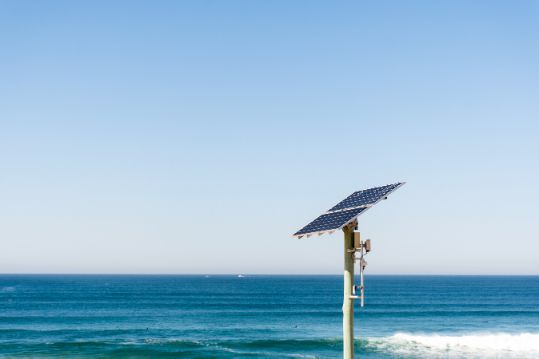 Solar energy is indeed a powerful tool in the fight against climate change. Harnessing the sun’s power offers significant environmental benefits, and understanding these can strengthen your decision to switch to solar. Here are a few key points on the environmental impact of solar energy:
Solar energy is indeed a powerful tool in the fight against climate change. Harnessing the sun’s power offers significant environmental benefits, and understanding these can strengthen your decision to switch to solar. Here are a few key points on the environmental impact of solar energy:
Reducing Greenhouse Gas Emissions
Traditional energy sources, like coal and natural gas, produce greenhouse gases when they’re burned for energy. These gases contribute to global warming. Solar panels, on the other hand, generate electricity without emitting greenhouse gases. By using solar power, you are directly reducing the amount of greenhouse gases that would otherwise be released into the atmosphere.
Conserving Water
Traditional electricity generation methods often require large amounts of water for cooling and processing. Solar photovoltaic cells, however, require no water to generate electricity. This makes solar power particularly beneficial in areas facing water scarcity.
Reducing Energy Transportation
Transporting fossil fuels can lead to spills and other accidents that have damaging effects on the environment. Solar energy is produced and consumed on-site, which eliminates the need for extensive transportation.
Preserving Habitats and Preventing Pollution
Extracting and mining fossil fuels can result in habitat destruction and water pollution. Since solar panels generate electricity from sunlight, a resource that’s abundant and accessible virtually everywhere, switching to solar power reduces the need for these harmful extraction processes.
Infinite Energy Source
The sun provides an unlimited source of energy that doesn’t deplete our planet’s resources, unlike fossil fuels. This sustainability aspect of solar power ensures we can meet our current energy needs without compromising future generations’ ability to meet theirs.
Making the switch to solar energy isn’t just a financial decision—it’s also a step towards living more sustainably. By choosing solar, you’re contributing to the solution to some of our most pressing environmental issues, including climate change and resource depletion.
Solar Energy is Reliable
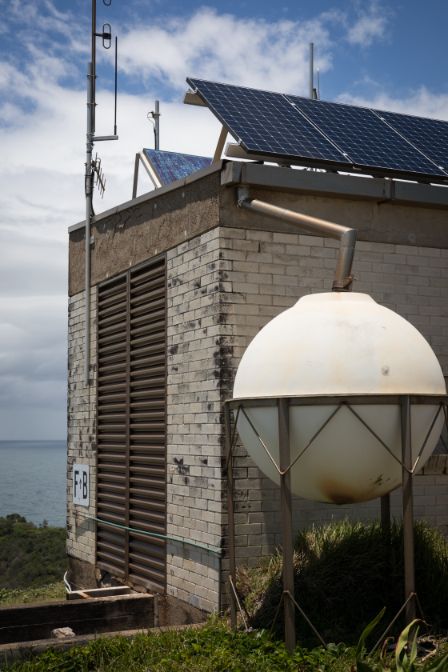 One of the key strengths of solar power is its reliability. Unlike some other forms of renewable energy, solar doesn’t rely on moving parts that can break down, which contributes to its longevity and dependability. Let’s delve into these points a bit further:
One of the key strengths of solar power is its reliability. Unlike some other forms of renewable energy, solar doesn’t rely on moving parts that can break down, which contributes to its longevity and dependability. Let’s delve into these points a bit further:
Longevity of Solar Panels
High-quality solar panels are built to last. They can function for 25 to 30 years or even more, with only a slight decrease in efficiency over time. This makes the initial investment in solar panels worthwhile, as the system will serve you for many years.
Low Maintenance
Solar panels require very little maintenance, particularly if they don’t have any moving parts. Other than occasional cleaning and a professional inspection every few years, solar panels can continuously generate electricity with little intervention.
Consistent Energy Production
Solar panels can reliably produce electricity for your home as long as there’s sunlight. The energy production of a solar panel system can be predicted fairly accurately based on the amount of sunlight your location receives, which allows you to calculate your potential savings.
Energy Storage
Advances in solar battery storage technology mean you can store excess electricity generated during the day for use during the night or on cloudy days, ensuring a consistent power supply. Battery storage technology continues to improve, with new options emerging that are more efficient and affordable.
Grid-Tied Systems
If your solar system is connected to the grid, you don’t have to worry about running out of power. You can draw electricity from the grid when your panels aren’t producing enough to meet your needs, such as at night or during periods of heavy cloud cover. Plus, in many places, you can sell your excess solar power back to the grid, offsetting your electricity costs even more.
Solar power is not only a sustainable and environmentally friendly energy source but also a reliable one. By combining solar panels with modern energy storage solutions or grid connections, you can have a consistent, dependable source of electricity for your home or business.
Community Solar Projects
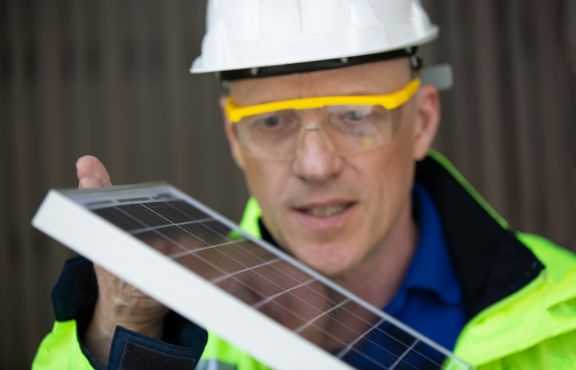 Community solar projects, also known as solar farms or solar gardens, are an innovative approach to solar energy that allows multiple participants to benefit from a single, shared solar array. This is a particularly appealing option for those who may not have suitable conditions for solar panels on their property, live in rented homes, or cannot afford the upfront investment of a personal solar panel system. Here’s what you need to know about community solar projects:
Community solar projects, also known as solar farms or solar gardens, are an innovative approach to solar energy that allows multiple participants to benefit from a single, shared solar array. This is a particularly appealing option for those who may not have suitable conditions for solar panels on their property, live in rented homes, or cannot afford the upfront investment of a personal solar panel system. Here’s what you need to know about community solar projects:
How it Works
A community solar project involves installing a large solar panel system in a sunny location. Individuals can then purchase a share in this solar array, and the electricity it generates is credited to each participant’s utility bill. In essence, you’re buying access to solar power without needing to install anything on your property.
Accessibility
Community solar can make solar energy accessible to a wider range of people. Even if you live in an apartment or a home with poor solar potential (due to shade, roof conditions, etc.), you can still benefit from solar power through a community solar project.
Affordability
Joining a community solar project often requires less upfront investment than installing a personal solar panel system. Plus, the costs (and the solar power produced) are shared among multiple people, which can make it a more affordable way to access solar energy.
Supporting Local Economy
Community solar projects are often local endeavors. By participating, you’re supporting local jobs and contributing to your local economy.
Environmentally Friendly
Just like with personal solar panels, participating in a community solar project allows you to reduce your carbon footprint and contribute to the growth of renewable energy.
To find out if there are community solar projects in your area, check with your local utility company or search online. You can also reach out to local environmental or renewable energy organizations, as they may be aware of ongoing or upcoming projects. Joining a community solar project can be a great way to start your journey with solar energy and reap its benefits, even if you can’t install solar panels on your property.
Fear of the unknown can be a hindrance, but remember, every new journey begins with a single step. The shift to solar energy not only makes financial sense but also aids in the preservation of our environment. The journey towards solar power offers the chance to become a part of the sustainable solution to energy needs while offering numerous personal benefits. So, let go of your reservations, educate yourself, seek professional advice, and take that first step towards a more sustainable future. You might just find that harnessing the power of the sun is easier and more rewarding than you ever imagined. Start your solar energy journey today!
